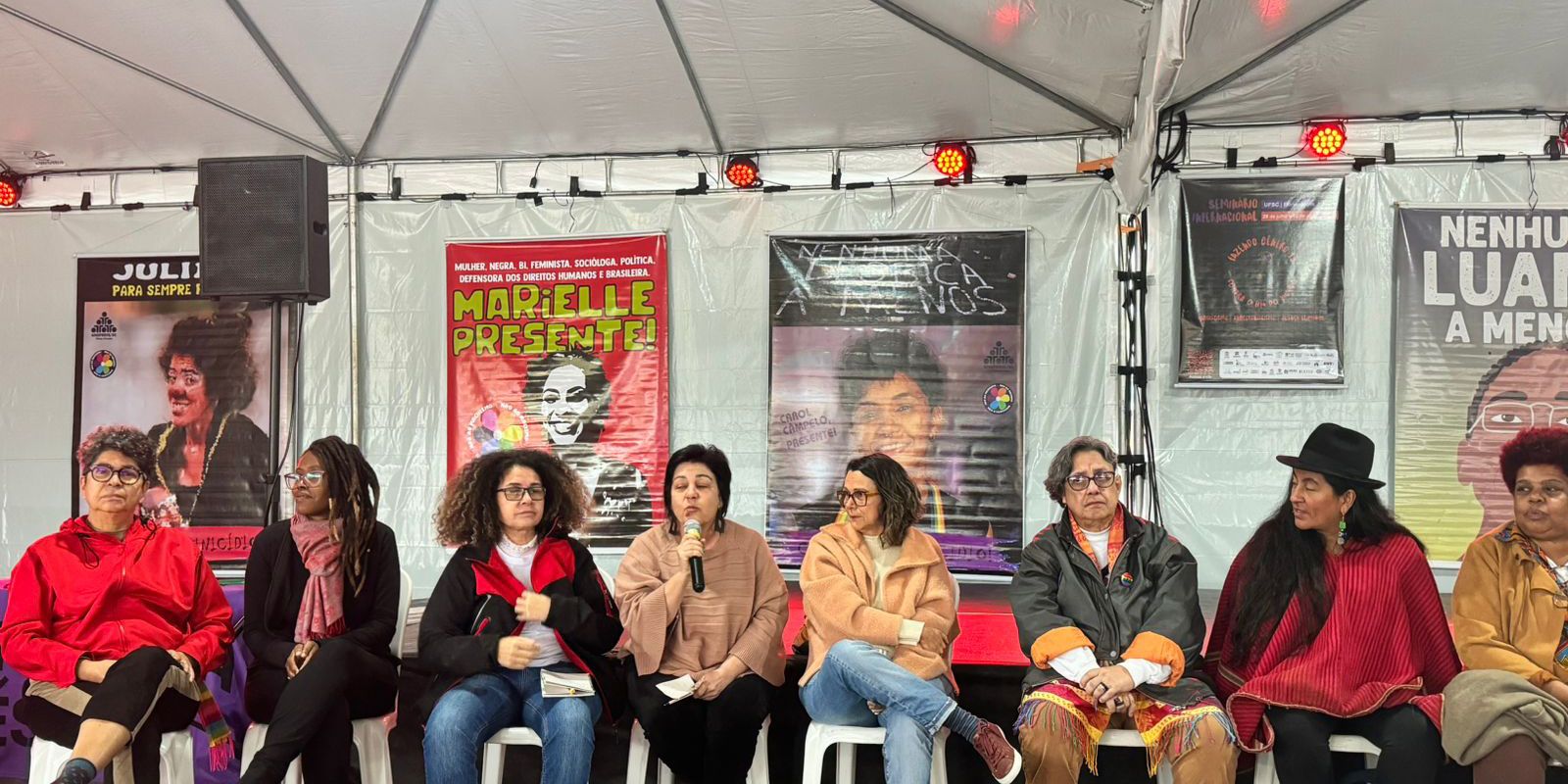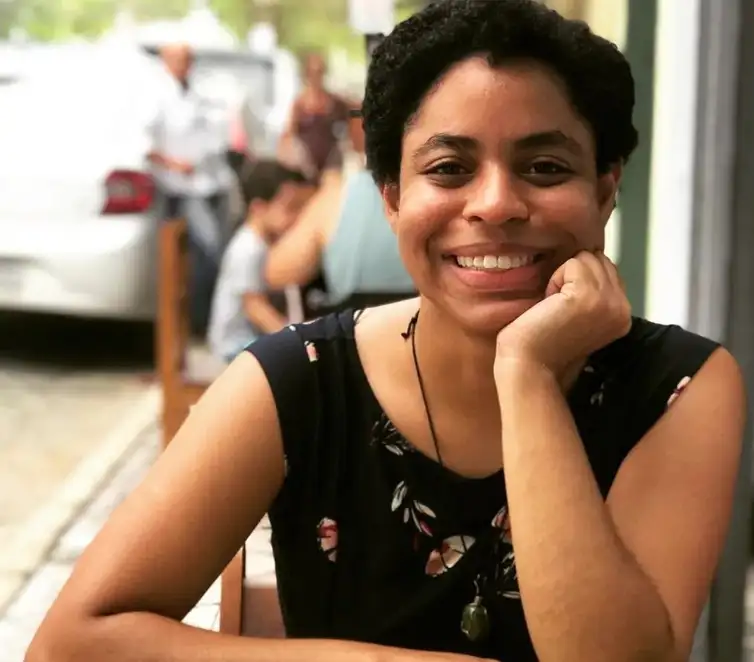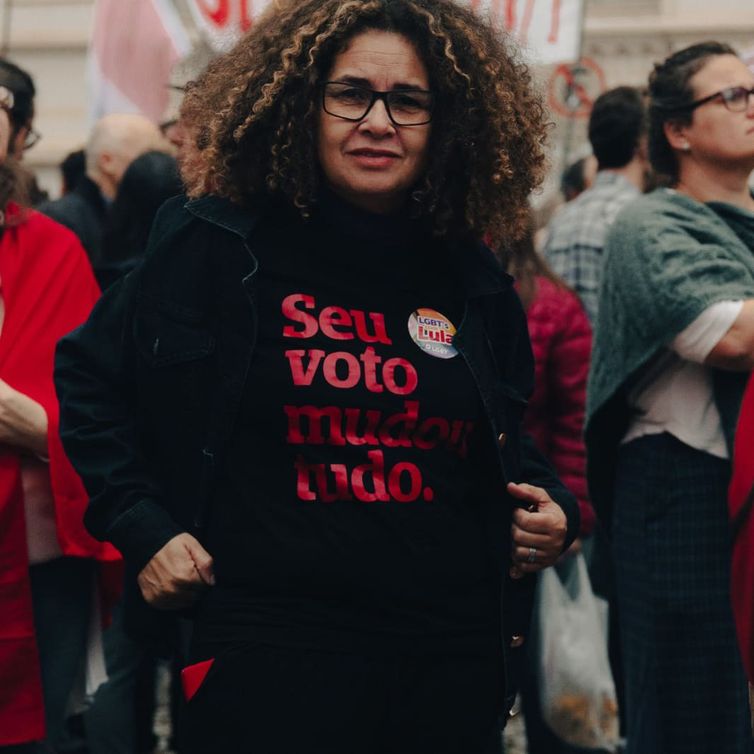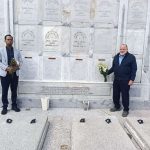Pride, in the collective sense, is a feeling of satisfaction with the achievements of other people with whom one has some connection or identity. The construction of collective pride, therefore, involves the knowledge that the group has of its own trajectory. This Monday (19), when Lesbian Pride Day is celebrated, researchers talk about their work to expand the meanings of this sexual and political identity.
The date is always remembered for the historic episode of Ferro’s Bar, an establishment in the bohemian area of downtown São Paulo, which was the scene of a lesbian women’s protest in 1983. The place had become a reference for this community, which saw the birth of a political organization of its patrons. One of the symbols of the movement was the circulation of the Chanacomchana newsletter, which was banned from sale by the bar owners. Thus began the most famous demonstration led by lesbians in the country.
Nowadays, in addition to activism on the streets and on digital platforms, groups of lesbian researchers have invested their strength in the production of knowledge, in disputes over memory and in the occupation of academic spaces. They share intellectual experiences and fight against the silencing and invisibility that have always been the norm in these environments.
This is the case of Paula Silveira-Barbosa, 28, a graduate and master in Journalism. She began her studies on alternative press, until she discovered sources on the lesbian press of the 1980s. The subject was taken up in her master’s degree, when she analyzed the history of publications and what legacy they could bring to journalism in general. The research became a book and was a semifinalist for the Jabuti Academic Award.
Paula was one of the founders of the Brazilian Lesbian Archive (ALB), an initiative that began in December 2020 by a group of lesbian researchers and activists. The group’s main mission is to preserve historical records related to lesbianism in Brazil and abroad, and to democratize access to research items. In this sense, preserving and better understanding memory promotes the reconnection with important references from the past.
“When we get involved in a social movement, in some type of activism, it is common to think that we are the most revolutionary people, that no one has ever been so avant-garde. When we look at what many lesbians did in the past, I suspect that, on some issues, they were more revolutionary than we were,” says Paula, who is the current general director of ALB. “We have many references of lesbian women in this struggle. The memory of what they did, what they produce, what they continue to produce in the present, also helps us to have a perspective for the future.”
The digital collection contains a variety of articles and research, and anyone interested can access it, provided they register in advance. Access is free, and reproduction is prohibited. The ALB also offers training courses and participates in debates and events on archives, memories and activism. Partnerships with organizations, collections and institutions that defend historically marginalized groups are common.
The first collection published in website he was Lesbian Presssources that were used by most researchers in the beginning and that included newspapers, bulletins, magazines, from the 80s to the most recent – made by lesbians for lesbians. The institution promoted a course on the subject and ran a crowdfunding campaign. With the money, it developed the digital collection and acquired equipment to digitize, catalog and clean the collection.
Lesbians Who Search
In August 2017, the group Lésbicas Que Pesquisam (LQP) was created with the aim of making lesbians visible in academia – as students, researchers or professors. To catalogue the researchers, a registration form was published on social media, which was available between August 2017 and January 2018.
The LQP has no restrictions on topics or areas of knowledge. Therefore, it does not only deal with lesbianism. The central idea is to disseminate reflections produced by lesbian women. Researchers with any qualification and ongoing training can join the list, from undergraduates to PhDs.
The group develops projects such as 50 Lesbians to Remember and the Database on the Lesbian Movement in Contemporary Brazil. There are also other virtual actions to publicize research, such as #lésbicasquepesquisamnafederal, in addition to sharing unpublished texts. The idea is that researchers can seek references among themselves and show that scientific knowledge is not only made by heterosexuals, whites and elitists.
The group’s social networks bring open reflections to understand the contemporary lesbian universe: demands in lesbian women’s mobilizations, organization of the lesbian movement in Brazil; whether it is more correct to speak of a plural lesbian movement or movements; points of confluence and dissent; issues that are not being addressed by the debates.
Lesbian Network Brazil
The National Network of Lesbian and Bisexual Activists and Researchers (Rede Lésbi Brasil) was launched in August 2019 in Rio Grande do Sul, during a public hearing on femicide. The goal was to bring together activists and researchers from all over the country, uniting activism and academic production. The network’s work has been to promote seminars, courses, debates and political events at the same time.
The Rede Lésbi Brasil has set itself the mission of combating “the compulsory condition of invisibility and erasure of lesbian and bisexual issues.” There is an understanding that it is necessary to politicize “experiences, affections and pleasures.” And one of the ways to do this is to produce specific public policies, based on the protagonism and perspectives of lesbian women, so that their demands are met.
The network currently has over 60 women connected in all regions of the country. One of them is Roselaine Dias, a teacher and master in education, and a PhD candidate in human sciences. She researched LGBTQIphobia from the perspective of young people in Campo Grande, the capital of Mato Grosso do Sul. Hundreds of students from the largest high school in the state were interviewed. The work was able to broaden understanding of the different types of sexual and gender-based violence present in the school environment.
In this union between politics and intellectual production, paths are opened to develop pride, affection and struggle.
“We are able to foster various spaces and fields of action through interrelationships, network intersections, articulation and dialogue. We bring discussions about lesbian women’s experiences, activism and pain. This is clear in the symposiums and political events in which we participate. A good example is Ocupa Sapatão, in Rio Grande do Sul, where we bring together activists and researchers to think about our struggles and demands. And we tell the entire city that we have the same right to be there, in the streets fighting for our rights. We bring together politics, pleasure, desire, culture and ways of living in public spaces,” says Roselaine.



















